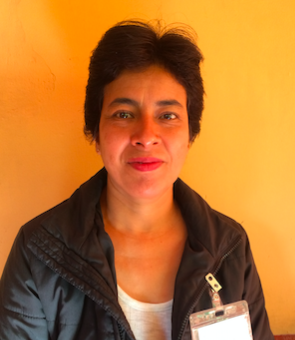October 31, 2018
Migrant Defense Committee Leader Fights for Gender Equality

In commemoration of Latina Equal Pay Day, on November 1, Marisol, a member of the Migrant Defense Committee, has shared her experience as an H-2A agricultural worker in Florida and her fight for gender equality.
"They invited me to join the Committee and I accepted because I really liked [the organization], because it [tackles issues] that I want to know more about. When there comes a moment that someone needs assistance, I would like to help them by offering the information that I gain in the organization.”
Only 7% of people hired on an H-2 visa are women, and those that do manage to receive an H-2 job offer are assigned positions with less opportunities for growth and lower salaries.
The working conditions that many women find themselves in are because of their gender, says Marisol; thus, activities assigned to women by their employers can be very different from those assigned to men. This greatly impacts both workload and salaries.
In some workplaces, an employer will determine tasks [assigned to women] based on [the notion] that they can’t endure as much as a man. Marisol adds that even though the tasks assigned to women sometimes imply a greater responsibility, they don’t come with a greater salary.
For migrant worker women, their experiences of discrimination begin during recruitment in their communities of origin and continue into their jobs under lower salaries. All women should have access to the same job opportunities, salaries, and benefits as [are available to] men.
Marisol tells us that employers argue that female workers are a “bother” in the workplace. Often times a woman will find herself surrounded by a group of only male workers, who allege that they have to be extra aware of the female worker, in addition to modifying housing and bathrooms and living spaces, in order to be able to hire women. Employers use this as justification to reduce women’s wages.
As an active member of the Migrant Defense Committee, Marisol says, “ Enough is enough! We need to be better informed...we must get our act together, open our eyes [to the situation] and keep pushing for more information, so that they don’t deceive us [anymore].”
The impact of failures in the U.S. system of labor migration is not gender neutral. The stories that migrant women have shared illustrate how the gender discrimination [which they experience] is deeply rooted in temporary migrant labor programs.
Other women in the Migrant Defense Committee, like Marisol, are working in their communities to combat gender discrimination from its beginning in the process of recruitment.
